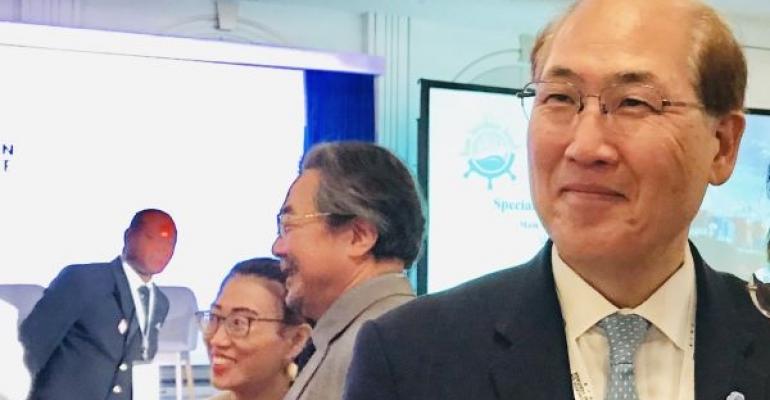Speaking at the inaugural World Congress on Maritime Heritage held in Singapore this week, Lim reminded that it is important to connect with the past in order to see the way towards the future.
“Since man first took to the waters in boats, society has depended on shipping for food, transportation and energy,” Lim said.
“As IMO secretary-general, heritage is not something I am always asked to speak about. But the connectivity element of maritime heritage seems particularly important. We can use maritime heritage to improve people’s awareness and understanding of their reliance on modern shipping,” he said.
Lim noted that in the present day, trade has evolved to the point where almost no nation can be fully self-sufficient.
“Global trade by ships mean people from all over the world are interconnected and interdependent. The benefits are clear. Growth can be accelerated and prosperity be made more widespread; skills and technology can be more equally dispersed,” Lim said.
Terry Garcia, chairman of the Consortium for International Maritime Heritage, commented: “The world today is a legacy of our maritime heritage. The first World Congress on Maritime Heritage provides an unprecedented opportunity to re-discover our past through the lens of our shared maritime heritage and examine how the factors that affected the past can inform the future.”
Copyright © 2024. All rights reserved. Seatrade, a trading name of Informa Markets (UK) Limited. Add Seatrade Maritime News to your Google News feed.


